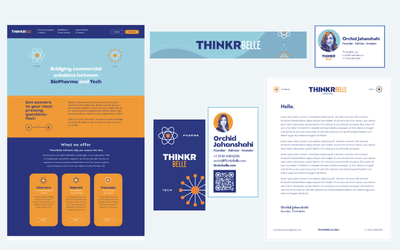[et_pb_section fb_built=”1″ _builder_version=”4.21.0″ _module_preset=”default” custom_margin=”50px||||false|false” global_colors_info=”{}” theme_builder_area=”post_content”][et_pb_row _builder_version=”4.21.0″ _module_preset=”default” global_colors_info=”{}” theme_builder_area=”post_content”][et_pb_column type=”4_4″ _builder_version=”4.21.0″ _module_preset=”default” global_colors_info=”{}” theme_builder_area=”post_content”][et_pb_image src=”https://hopskipmarketing.com/wp-content/uploads/2023/01/Untitled-design-6.png” title_text=”Untitled design (6)” _builder_version=”4.24.2″ _module_preset=”default” custom_margin=”||||false|false” hover_enabled=”0″ global_colors_info=”{}” theme_builder_area=”post_content” align=”center” sticky_enabled=”0″ force_fullwidth=”on”][/et_pb_image][/et_pb_column][/et_pb_row][/et_pb_section][et_pb_section fb_built=”1″ admin_label=”section” _builder_version=”4.16″ custom_margin=”0px||||false|false” custom_padding=”0px||||false|false” global_colors_info=”{}” theme_builder_area=”post_content”][et_pb_row admin_label=”row” _builder_version=”4.16″ background_size=”initial” background_position=”top_left” background_repeat=”repeat” width=”auto” global_colors_info=”{}” theme_builder_area=”post_content”][et_pb_column type=”4_4″ _builder_version=”4.16″ custom_padding=”|||” global_colors_info=”{}” custom_padding__hover=”|||” theme_builder_area=”post_content”][et_pb_text admin_label=”Text” _builder_version=”4.19.0″ background_size=”initial” background_position=”top_left” background_repeat=”repeat” custom_padding=”||0px|||” inline_fonts=”ABeeZee” global_colors_info=”{}” theme_builder_area=”post_content”]
Is there a place for conscious capitalism in B2B?
[/et_pb_text][et_pb_text admin_label=”Text” _builder_version=”4.19.0″ background_size=”initial” background_position=”top_left” background_repeat=”repeat” custom_padding=”39px||0px|||” inline_fonts=”ABeeZee” global_colors_info=”{}” theme_builder_area=”post_content”]
Increasingly, customers are opting to support businesses that take an ethical approach by prioritizing environmental issues and social justice. This style of profit-making, dubbed “conscious capitalism”, appeals to a widening segment of consumers who want to vote with their wallets for a better, more just world. The benefits to B2C companies are clear: businesses who act according to the principles of conscious capitalism can get a competitive edge with consumers while still creating profit for shareholders and value for the planet. In the B2B world, however, the benefits are less obvious. If you’re wondering how conscious capitalism fits into the B2B relationship, you’ve come to the right place.
Understanding conscious capitalism
Workplaces are full of relationships and these can run deep, particularly in a family business. Ask any therapist worth their salt the number one skill to a healthy relationship and they’ll tell you it’s communication.
In a family business, assumptions are easy to make and boundaries can be muddied. If you want to succeed, you’ll have to communicate clearly about project goals, expectations, and disputes. The best practice is to set up regular in-person meetings. You’ll find that a little bit of formality can help foster trust and appropriate boundaries.
Recruit from outside
Where the traditional model of capitalism serves to increase shareholder profit, conscious capitalism takes a broader view. In addition to shareholders, it also considers its community, employees, society at large, and the environment in its operations. This more expansive orientation is guided through four main principles:
– Higher purpose. Businesses strive towards profitability, but for conscious capitalists, the profitability is a means to an end, and that end is the business’ raison d’etre.
– Stakeholder orientation. Traditionally, “stakeholders” are those who own shares of a business. Under conscious capitalism, the notion of stakeholders is enlarged to include everyone involved in the business from customers to employees to investors.
– Conscious culture. The business serves all stakeholders and operates towards a higher purpose.
– Conscious leadership. Leaders are responsible for creating a culture of social responsibility.
Lessons in conscious capitalism from the B2C world
Although the trend towards conscious capitalism began in the B2C world, the benefits—for businesses and the world—are convincing. Businesses using this model have not only remained profitable, but have also garnered increased positive association from their customers. It turns out that demonstrating interest in the well-being of the community, society, and the planet is good business sense.
Let’s look at an example. American rock climber and environmentalist Yvon Chouinard founded outdoor gear company, Patagonia, in 1973 and since has been one of the most vanguard examples of a conscious capitalist. Patagonia products have always been made with as little environmental impact as possible. But in 1985, Chouinard took his vision a step further and self-imposed a 1% “earth tax”, the funds from which go to global environmental nonprofits. In 2017, the company launched its Worn Wear campaign which resells used Patagonia gear. And in 2022, it transferred all stock to the Holdfast Collective, which fights environmental crises, and the Patagonia Purpose Trust, which fights climate change.
Each of these decisions is a business move powered by the tenets of conscious capitalism—which is still, at its heart, capitalism. In 2022, Patagonia was valued at about $3 billion.
How can conscious capitalism benefit your B2B business?
Just as in the B2C world, conscious capitalism can be a way to increase the satisfaction of everyone involved in your business. Employees can feel good about where they work. Suppliers can rest assured their efforts contribute to the common good. Vendors can sell, secure in the knowledge that their product has broad value. And shareholders can enjoy their profit while also reaping the social and enviromental benefits of the businesses they invest in.
Consider these questions posed by Yvon Chouinard in 2004: “Who are businesses really responsible to? Their customers? Shareholders? Employees? We would argue that it’s none of the above. Fundamentally, businesses are responsible to their resource base. Without a healthy environment there are no shareholders, no employees, no customers, and no business.”
Conscious capitalism requires a perspective shift and that can be a daunting ask for busy people—but it needn’t all happen at once. If you’re interested in examining your business model, you can begin by exploring your purpose. You can make changes to the structure of your employee benefits. You can find ways to leverage your business’ power for the greater good.
[/et_pb_text][/et_pb_column][/et_pb_row][/et_pb_section]



